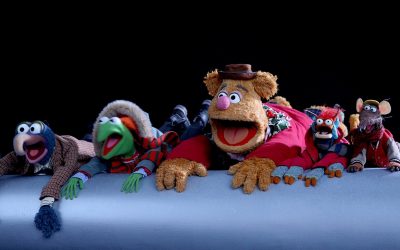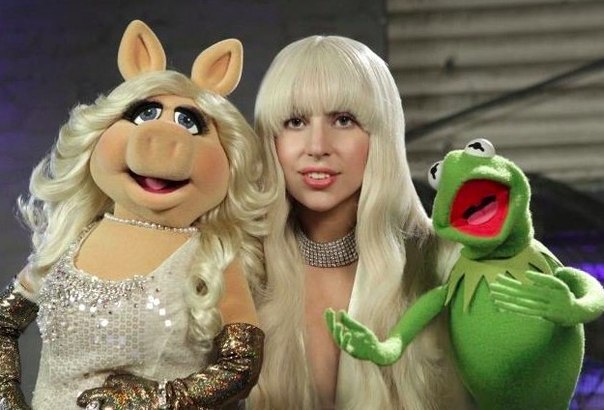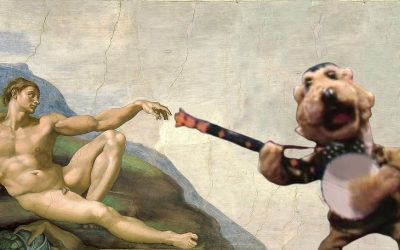The following review was written by longtime ToughPigs friend David Beukema. Thanks for sharing your love of The Muppet Show with us, David!
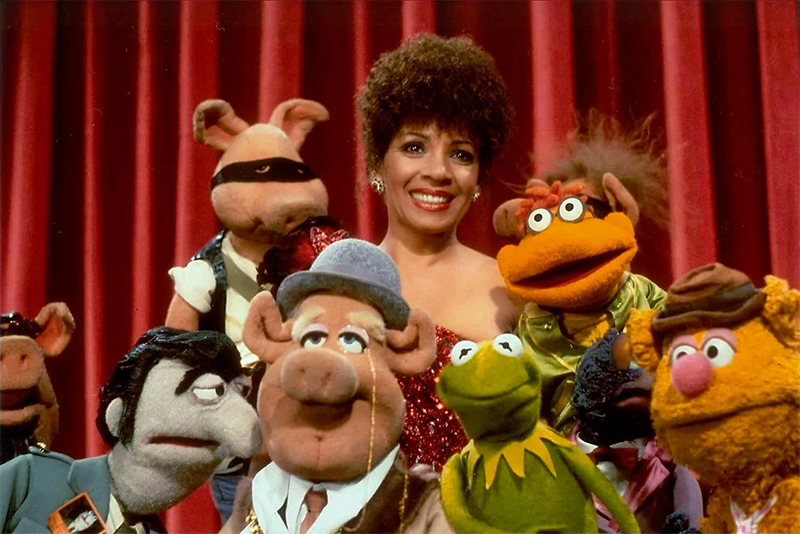
Original air date: October 2, 1980
If you’re a regular reader of The Muppet Show: 40 Years Later, my name will not be a familiar one. Tough Pigs brought me in as a ringer this week, because not only am I a Muppet Show fanatic, I am also an obsessive fan of this week’s guest star, Shirley Bassey! I was probably around 12 when I first saw this episode, and from that jumping off point, Shirley evolved into my all-time favorite singer. I got to thinking, though: would I have discovered Shirley on my own without The Muppet Show? Certainly I would have been aware of her Bond themes (she’s the only artist to sing more than one, and she did THREE, thank you very much), but would my love of her and her catalogue of songs have taken off without her being a guest star? With Shirley as a jumping off point, I began to examine the influence of Muppet Show guest stars in my life.
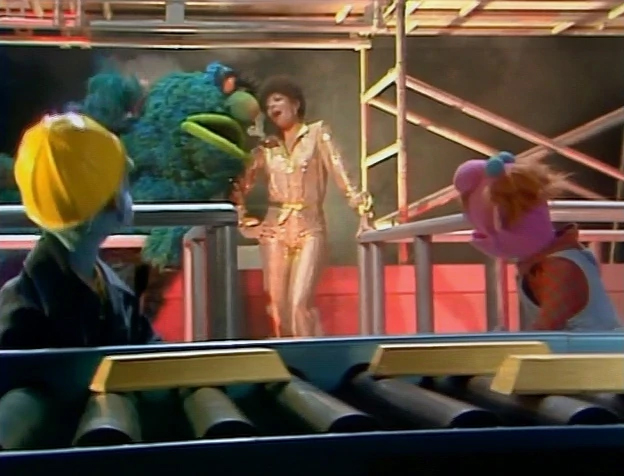
In my mind, there have always been two breeds of celebrities: Muppet Show guests and “the rest”. I’ve always been obsessed with them. As a child, when I was supposed to be taking a nap, I would instead yell out my bedroom window to the neighbors and start naming guest stars in my adorable little speech impediment: “Wita Moweno! Kwis Kwisstoffewson! Effew Mewman!” And to this day, when a guest star pops up somewhere, their appearance on the show is the first association I make. They have an extra glow around them; an aura of having been part of something truly special.
I consider the years I spent watching The Muppet Show as a kid to have been a master class in entertainers. How lucky I (and all kids who grew up watching it) was to have had exposure to some of the greatest performers of the 20th Century (plus Rich Little). To see greats like Madeline Kahn and Steve Martin and Carol Burnett working with the Muppets made me want to seek out more of their work, and with many guest stars, I became a huge fan (or not, e.g. Rich Little).
Shirley was on another level, though. Her “dramatic sophistication”, as Kermit puts it in one of his introductions, transfixed me, and over the years I’ve collected everything she ever recorded (over 800 songs, with more to come this fall with the release of her new album). And this fandom, though strongest with Shirley, didn’t end there. My music collection overflows with other guest stars: Cleo Laine (another performer I’m a completist about), Melissa Manchester, Lou Rawls, Elton John, Judy Collins, Leo Sayer, Crystal Gayle, Linda Ronstadt, John Denver, and on and on. Because they were on The Muppet Show, and because Jim Henson gave him his stamp of approval, the floodgates opened for me to explore their artistry. The Muppet Show was my gateway to pop culture at large. I can’t imagine my life without them… except maybe Rich Little. (Can you tell I don’t like Rich Little?)
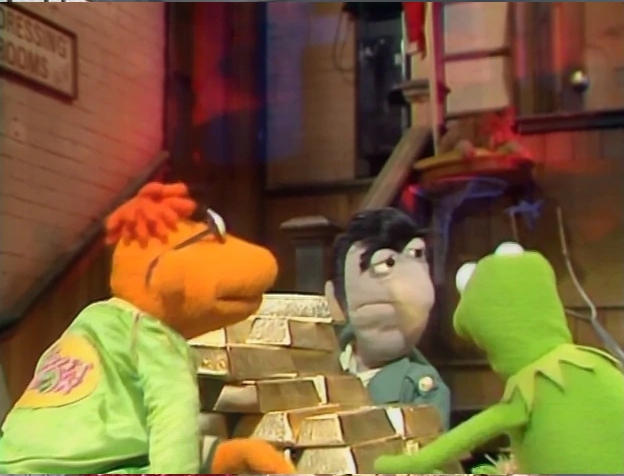
I could easily keep waxing rhapsodic about guest stars and their impact on me, but let’s get into the episode itself! The Muppet Theater has been loaned $50,000,000 worth of gold to be used for Shirley’s closing number – her signature song “Goldfinger” – and along with the gold comes a surly guard, Bruno, in the fine tradition of single episode antagonists like Inspector LaBrea (Dizzy Gillespie episode) or Big Tiny Tallsaddle (Johnny Cash episode). Bruno is a jerk, but he’s a terrific Jerry Nelson character, so we’ll give him a pass. The episode revolves around his aggressive defending of the gold, and several characters run afoul of him for touching or taking the precious metal, from Kermit to Beaker to the Newsman to even Shirley herself.
The Electric Mayhem starts us off with a fantastic opening number (shining a light on its most obscure member), Muppet Labs solves the age-old dilemma of turning gold into cottage cheese, Gonzo performs one of his strangest acts, and we get two instrumental numbers that really highlight the expert puppetry of the Muppet performers. Let’s dig in!
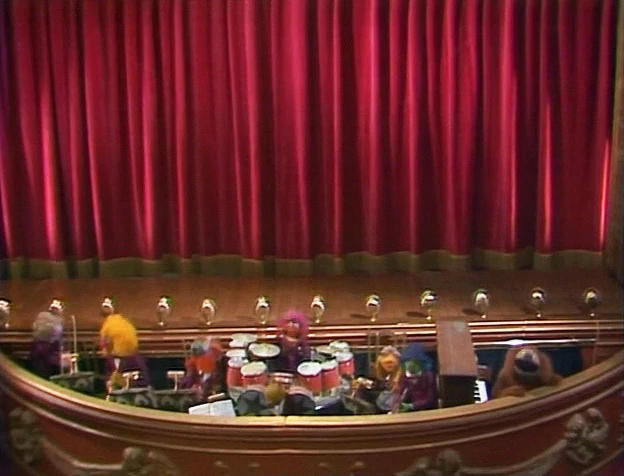
Best Joke: When Pops meets Shirley at the stage door and finds out she’s the guest star on the show, he tells her she can brush his rat. Shirley balks at the suggestion, but Pops tells her everyone pitches in around here. Undeterred, Shirley deadpans, “Oh, good, then you can comb my crocodile,” and plops one down on Pops’ desk. It’s a perfect bit of random Muppet lunacy.
Runner up: When Gonzo blows his horn in the opening credits, a rooster sound comes out, and he calls into the wings, “Camilla, your uncle’s calling!” Cute.
Lamest Joke: Following Shirley’s performance of “Fire Down Below”, Waldorf and Statler have the following exchange:
WALDORF: Ah, Fire Down Below! Great number!
STATLER: Thanks!
WALDORF: Thanks? You didn’t write Fire Down Below.
STATLER: No, but the guy who did had just had a bowl of my chili!
I can do without scatological Muppet humor, I think.
Most Valuable Muppet: I gotta go with Lips! A late addition the band, introduced just this season, Lips gets a couple moments to really shine in this episode. He has his only vocal performance of the entire series (more on that later) and a killer trumpet solo in the UK Spot. The “Fifth Beatle” of the Electric Mayhem gets his due!
Most Classic Moment: “Barnyard Boogie” is one of the Electric Mayhem’s best numbers of the whole series, and it finds them stepping out of their usual psychedelic rock forte into jazz and swing. The band is all appropriately attired in 1940’s outfits (Zoot being literally dressed in a zoot suit) and we get vocal solos from Dr. Teeth, Floyd, Janice, Lips (I told you there’d more on that later!), and Animal enthusiastically bellowing, “Boogie! Boogie! Boogie!” It’s a perfect showcase of the whole band.
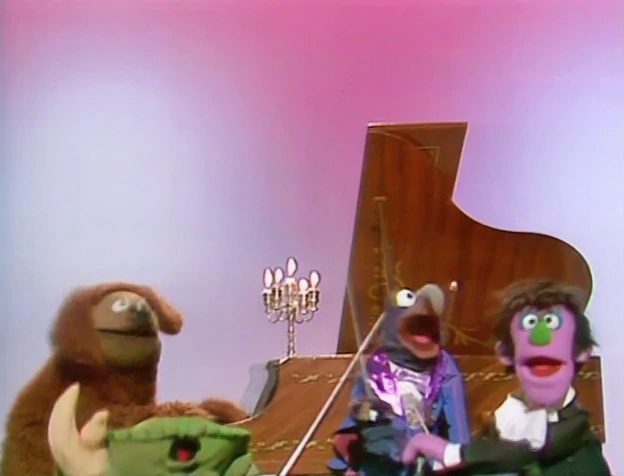
Should-Be-Classic Moment: Gonzo’s act, where he conducts Liebesträume while dueling a crab (and then also a traitorous violinist) is truly bizarre, even for him. It’s hilarious and ends with a flesh wound, just the way Gonzo likes it.
Most Dated Joke: After the Dancing Sacks are sacked, the two anthropomorphic totes bicker backstage.
FEMALE SACK: It’s all your fault! You’ve got no sense of rhythm!
MALE SACK: Aw, shut up, you old bag!
Nothing like a little verbal abuse/domestic incident played for comedy, am I right?
First Appearance Of…: Lips’ voice! And almost the last, too, until modern times. Apparently Steve Whitmire wanted to give Lips a Louis Armstrong voice, which he does in Lips’ singing lines in the opening number, but he felt it might have been inappropriate for a white guy to do. So, Lips never talked much outside of this episode and The Great Muppet Caper. His brief singing here makes me wish we could have heard more from him, perhaps a UK Spot where he sings a whole song and peppers it with trumpet solos.
Also first (and I think only) appearance of the awesome crab puppet that Gonzo fights. He’s named Buster, which I learned from the Muppet Wiki, is a reference to an old actor named Buster Crabbe. The More You Know!
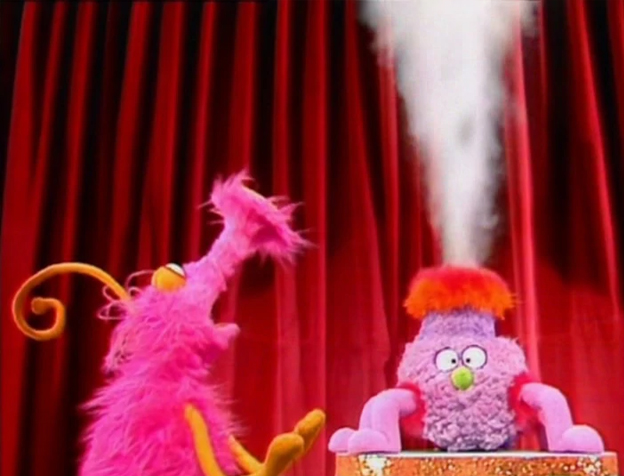
Coolest Puppetry Effect: Two of the musical highlights of the episode are instrumental numbers, and even without vocals to lean on, the puppetry is enough to make them totally believable. First, two Fazoobs (apparently, according to the Wiki, named Cute and Cannon) perform the Irving Berlin standard “Isn’t This a Lovely Day”. Cannon punctuates the song by shooting cannonballs from the top of his head that then land back inside. It’s all done in one take, and it’s perfectly orchestrated, with the smoke and explosions of each blast, each ball landing back inside, glitter sprinkling down at one point, and finally a giant cannonball falling and knocking out the other Fazoob. It’s remarkable to think of all the moving parts for just this one simple number, done in one take. And then the UK Spot showcases the Muppet orchestra, with seven musicians (Janice on banjo!) playing a swinging rendition of the jazz classic “After You’ve Gone”. Each of the characters’ playing is so convincing that you would think these puppets were actually creating the music you hear, plus it holds our attention for two minutes with no speaking or singing. That’s an incredible skill, and a true testament to how incredible the Muppet performers were at what they did.
Musical Highlight: Look, I have 18 different recordings of Shirley Bassey singing Goldfinger, and I can tell you definitively that her Muppet Show performance of the song was her best ever. She’s at the height of her vocal powers, she’s relaxed and sexy, and her belting of the final note has never been better. Plus we get a bunch of pigs dressed like Bond villains in the background. Perfect.
Obscure Character Watch: In his dressing room chat with Shirley, Fozzie brings up his comedy writer, Gags Beasley, who was first mentioned way back in Season 1’s Sandy Duncan episode! It’s a nice throwback, one that the Muppets trot out from time to time as an Easter egg for diehard fans. I have always loved that we never get to see Gags Beasley either; he’s the Maris of the Muppet universe!
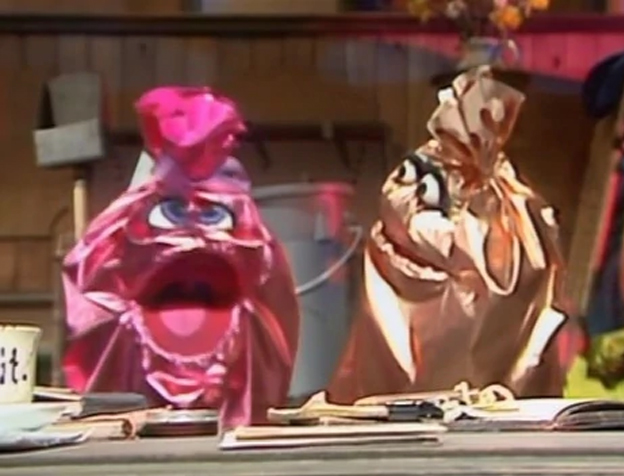
Adultiest Content: Dancing Sacks. Heh.
Missed Opportunity: Miss Piggy is nowhere to be seen this entire episode. How great would it have been to have Piggy and Shirley either commiserate or square off, diva to diva?
One More Thing: This is a great Beaker episode, too. The way he casually steals a gold bar when no one is looking got a big laugh from me, as did his struggle to lift the bar into the alchemy machine. We often think of Beaker’s over the top “meeping”, but Richard Hunt was at his most brilliant with Beaker’s tiny mannerisms and asides. Beaker’s definitely the runner-up MVM!
Okay, One More Thing: I love Link’s literal gold finger when he’s dressed as Goldfinger. Especially when he randomly sucks on it. Nice touch, Jim … pun intended.
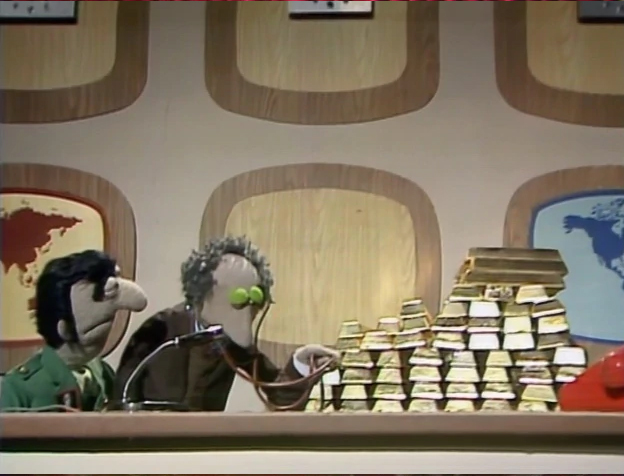
Thanks, Tough Pigs, for having me! Long live The Muppet Show and Shirley Bassey!
Click here to turn gold into the ToughPigs forum!
by David Beukema

